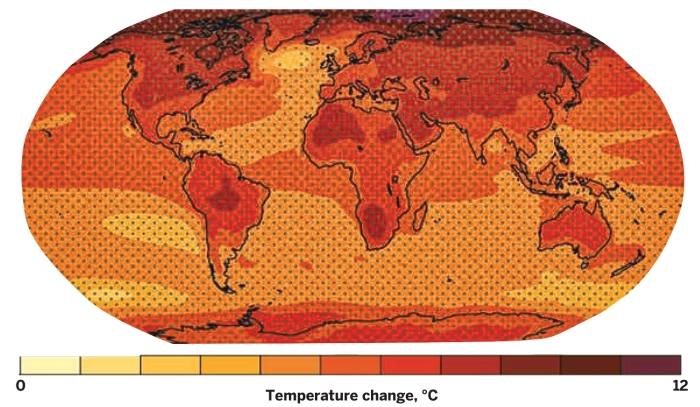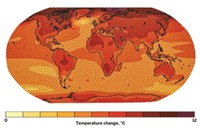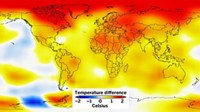Advertisement
Grab your lab coat. Let's get started
Welcome!
Welcome!
Create an account below to get 6 C&EN articles per month, receive newsletters and more - all free.
It seems this is your first time logging in online. Please enter the following information to continue.
As an ACS member you automatically get access to this site. All we need is few more details to create your reading experience.
Not you? Sign in with a different account.
Not you? Sign in with a different account.
ERROR 1
ERROR 1
ERROR 2
ERROR 2
ERROR 2
ERROR 2
ERROR 2
Password and Confirm password must match.
If you have an ACS member number, please enter it here so we can link this account to your membership. (optional)
ERROR 2
ACS values your privacy. By submitting your information, you are gaining access to C&EN and subscribing to our weekly newsletter. We use the information you provide to make your reading experience better, and we will never sell your data to third party members.
Environment
Electron Election
by Rudy M. Baum
November 10, 2014
| A version of this story appeared in
Volume 92, Issue 45
I bumped into an American Chemical Society member I know at a James McMurtry concert at the Birchmere in Alexandria, Va., last week on Election Day. He said to me, “Remember, only one letter separates ‘electron’ from ‘election.’ ”
Ponder that for a moment.
It’s deeper than you think.
Here’s something else to ponder: The climate change debate has been going on for almost 120 years. In 1896, Svante Arrhenius—Swedish physical chemist, has an equation named after him, won the Chemistry Nobel Prize in 1903—authored a paper, “On the Influence of Carbonic Acid in the Air upon the Temperature of the Ground,” in which he calculated the amount Earth’s temperature would increase (5 to 6 ºC according to him) if the atmospheric concentration of CO2 doubled. Being a Swede, he thought such a temperature increase would be a good thing.
In 1900, another Swede, Knut Ångström—no, not that one, his son—said Arrhenius was wrong because the CO2 infrared absorption band was “saturated” and adding CO2 to the atmosphere wouldn’t make any difference, an argument climate change skeptics/deniers still make.
Arrhenius was right. Ångström was wrong. If you don’t understand why, you don’t understand how climate works. Take a look at the ACS Climate Science Toolkit or the American Institute of Physics’ “The Carbon Dioxide Greenhouse Effect” for concise explanations of why.
Which brings us to the latest report, the fifth, from the United Nations Intergovernmental Panel on Climate Change, released on Nov. 1. (I know, some C&EN readers are fatigued by my editorials on climate change and the IPCC. I promise, this is the last one by me that will appear in C&EN. Ever.)
Let’s just start with some bullet points from the report:
◾ “Human influence on the climate system is clear, and recent anthropogenic emissions of greenhouse gases are the highest in history. Recent climate changes have had widespread impacts on humans and natural systems.”
◾ “Warming of the climate system is unequivocal, and since the 1950s, many of the observed changes are unprecedented over decades to millennia. The atmosphere and the ocean have warmed, the amounts of snow and ice have diminished, and sea level has risen.”
◾ “Continued emission of greenhouse gases will cause further warming and long-lasting changes in all components of the climate system, increasing the likelihood of severe, pervasive and irreversible impacts for people and ecosystems. Limiting climate change would require substantial and sustained reductions in greenhouse gas emissions which, together with adaptation, can limit climate change risks.”
◾ “Surface temperature is projected to rise over the 21st century under all assessed emission scenarios. It is very likely that heat waves will occur more often and last longer, and that extreme precipitation events will become more intense and frequent in many regions. The ocean will continue to warm and acidify, and global mean sea level to rise.”
◾ “Many aspects of climate change and associated impacts will continue for centuries, even if anthropogenic emissions of greenhouse gases are stopped. The risks of abrupt or irreversible changes increase as the magnitude of the warming increases.”
◾ Despite this grim assessment, the IPCC report maintains a certain upbeat outlook that I am unable to share. For instance: “Climate change is a threat to sustainable development. Nonetheless, there are many opportunities to link mitigation, adaptation and the pursuit of other societal objectives through integrated responses (high confidence). Successful implementation relies on relevant tools, suitable governance structures and enhanced capacity to respond (medium confidence).”
As if. The election results cemented into place a U.S. Congress that denies the reality of climate change and holds IPCC in contempt. The odds of Congress doing anything to address climate change in the next two years are exactly zero. It was an electron election.
Thanks for reading.
Views expressed on this page are those of the author and not necessarily those of ACS.





Join the conversation
Contact the reporter
Submit a Letter to the Editor for publication
Engage with us on Twitter